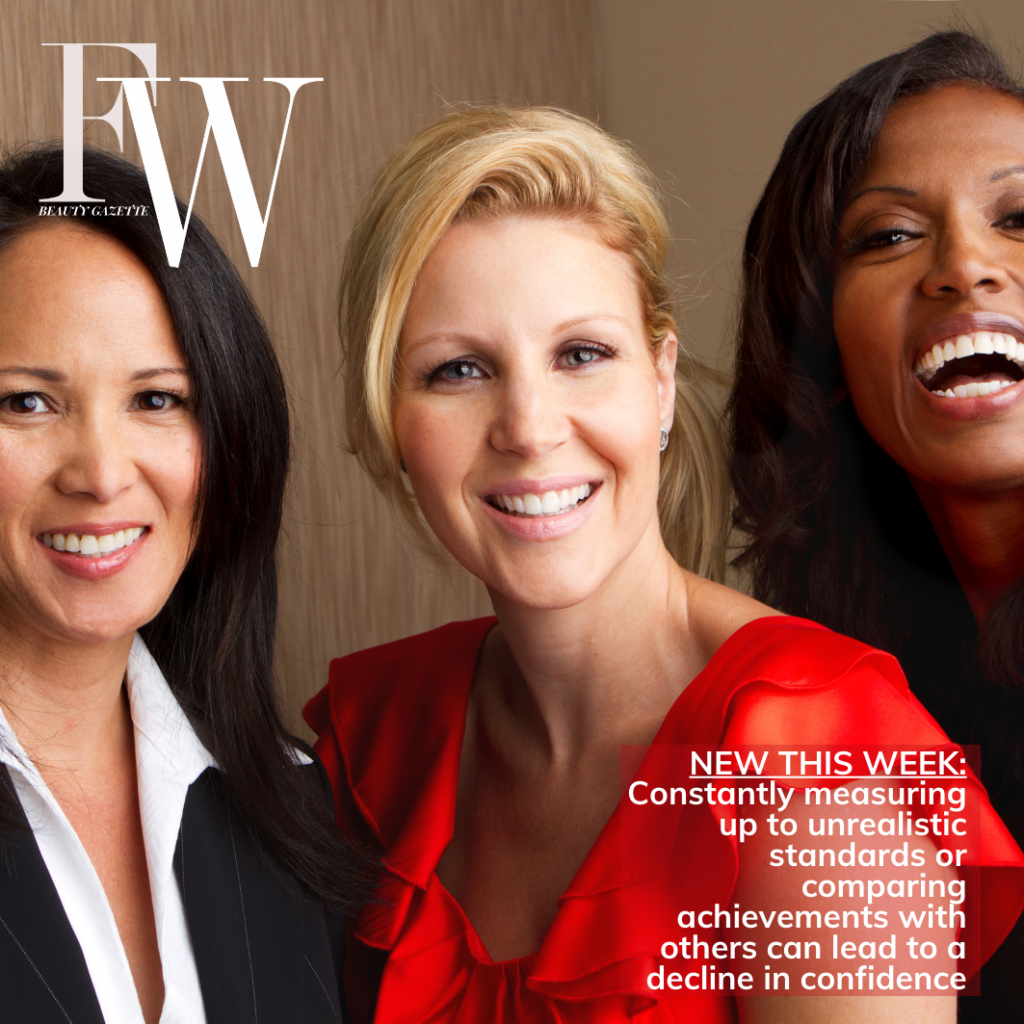Confidence can be influenced by various factors. Here are five common challenges that women between the ages of 30 and 60 may face in relation to confidence:
1. Societal Expectations:
One significant challenge to women’s confidence is the pressure to conform to societal expectations. These expectations can include body image standards, career choices, family roles, and personal achievements. Society often imposes rigid standards and expectations on women, which can lead to self-doubt and diminished confidence. Women may feel pressured to conform to beauty ideals, excel in their careers, be perfect mothers, and maintain a harmonious work-life balance.
It is essential to challenge societal beauty standards and recognize that beauty comes in various forms at every age.
Challenging these norms involves recognizing that everyone is unique, embracing individuality, and defining success on one’s own terms. Cultivating self-acceptance and focusing on personal values and aspirations can empower women to build confidence outside societal expectations.
2. Work-Life Balance:
Balancing professional and personal responsibilities can be a constant struggle for women, particularly during the prime working years. Juggling career demands, family obligations, and personal aspirations can cause self-doubt and feelings of inadequacy. Balancing professional and personal responsibilities can be overwhelming and impact women’s confidence. They may question their ability to meet the demands of their careers while fulfilling family obligations and personal aspirations.
Establishing clear boundaries between work and personal life, seeking support from loved ones or professional networks, and prioritizing self-care are crucial for maintaining confidence. Effective time management, setting realistic expectations, and asking for help when needed can alleviate the stress and boost confidence in managing multiple roles.

3. Self-Comparison:
Women often compare themselves to others, especially in the era of social media. Constantly measuring up to unrealistic standards or comparing achievements with others can lead to a decline in confidence. The prevalence of social media and the constant exposure to carefully curated images and achievements of others can trigger self-comparison and negatively affect confidence. Women may find themselves measuring their worth based on unrealistic standards or feeling inadequate compared to others.
It is important to remember that social media often showcases a distorted reality. Limiting exposure to social media, practicing gratitude for one’s own journey, and focusing on personal growth rather than external validation can help restore confidence. Surrounding oneself with a supportive social circle that celebrates individuality and authenticity is also beneficial. Focusing on personal growth, celebrating individual accomplishments, and limiting exposure to social comparisons can help restore confidence.

4. Aging and Body Image:
As women age, societal pressure to maintain youthful appearances can negatively impact confidence. Changes in physical appearance, such as wrinkles, weight gain, or gray hair, can challenge self-esteem. Women may face challenges in embracing the natural aging process and feeling confident about their changing bodies. Societal pressure to maintain a youthful appearance can lead to self-esteem issues.
It is essential to challenge societal beauty standards and recognize that beauty comes in various forms at every age. Practicing self-care, both physically and mentally, can contribute to a positive body image. Engaging in activities that promote self-confidence, such as exercise or pursuing hobbies, and surrounding oneself with positive influences that celebrate aging can help women develop a strong sense of self-worth. Embracing the natural aging process, practicing self-acceptance, and recognizing inner beauty can foster confidence at any age.
5. Negative Self-Talk:
Internal dialogue plays a significant role in confidence. Negative self-talk, self-doubt, and a harsh inner critic can erode self-esteem. Negative self-talk involves the critical and harsh inner voice that undermines confidence. Women may engage in self-doubt, self-criticism, and perpetual comparison with others, leading to a decline in self-esteem. Developing self-compassion is essential in countering negative self-talk. This involves treating oneself with kindness, understanding, and forgiveness.

Recognizing and challenging negative thoughts, reframing them into positive affirmations, and practicing self-affirming behaviors can gradually shift the internal dialogue and boost confidence. Each are effective strategies for overcoming this challenge and building confidence.
Addressing these challenges requires a combination of self-reflection, self-compassion, and proactive strategies. Seeking support from trusted friends, family, or professional counselors can provide additional guidance and encouragement in building confidence. Remember, confidence is a lifelong journey, and each step taken towards self-acceptance and personal growth contributes to its development. Because confidence is a journey, and it takes time and effort to cultivate. By addressing these challenges and focusing on personal growth and self-acceptance, women can strengthen their confidence and lead fulfilling lives.


